Modular by design: breaking down Privy wallet deployments
How teams are using Privy to build everything from seamless sign-ins to complex, integrated onchain workflows.
Debbie Soon
|Jun 25, 2025
Serving more than 1,000 teams, we’ve seen builders use Privy to power everything from simple logins to sophisticated automation engines. Whether you're building delegated access for trading, multisig flows for teams, or backend-controlled infrastructure, Privy gives you the flexibility to design exactly what your app needs.
For many teams, that journey starts with the basics: a single user, a single wallet. This is the standard in most consumer crypto applications—like marketplaces and games—and it’s a major unlock: no seed phrase, no extension, just a seamless, embedded experience. It’s fast to integrate, easy to reason about, and intuitive for users.
But Privy’s wallet system is built on a powerful cryptosystem that enables far more sophisticated interaction models, from multisigs and team wallets to delegated trading and app-controlled automation.
In this post, we break down a few core patterns we see for configuring Privy in production today. From standard flows to multi-tenant wallets and delegated control, these patterns reflect the many ways in which programmable ownership can be utilized on the web to meet real-world needs across trading, banking, consumer apps, and beyond.
1. Secure wallets for users

The most common embedded wallet configuration is simple: one user, one wallet. This is the starting point for most applications using Privy today.
In this setup, users onboard via familiar authentication methods (e.g. email, social, WhatsApp, etc.), and are instantly provisioned with a secure non-custodial wallet. From there, they can interact with any contract or chain directly from within the product of their choice, with no need to install browser extensions or manage seed phrases. Developers can even pre-generate wallets for users before they have onboarded.
This setup is most commonly used by games, creator tools, and social apps. Examples include marketplaces like OpenSea and Courtyard or social platforms like Rodeo or Zora.
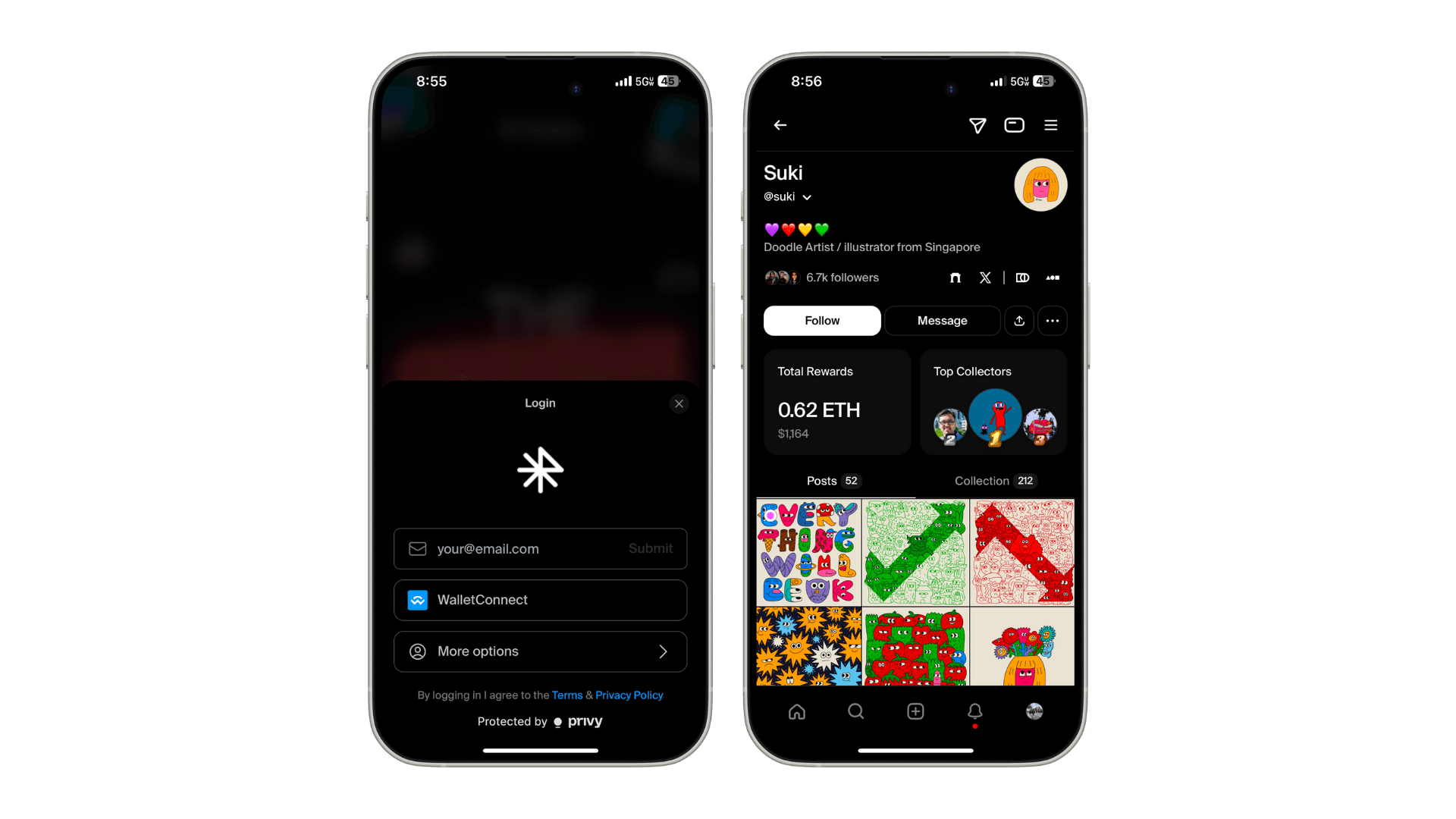
2. Multiwallet setups for cross-chain and multi-purpose apps
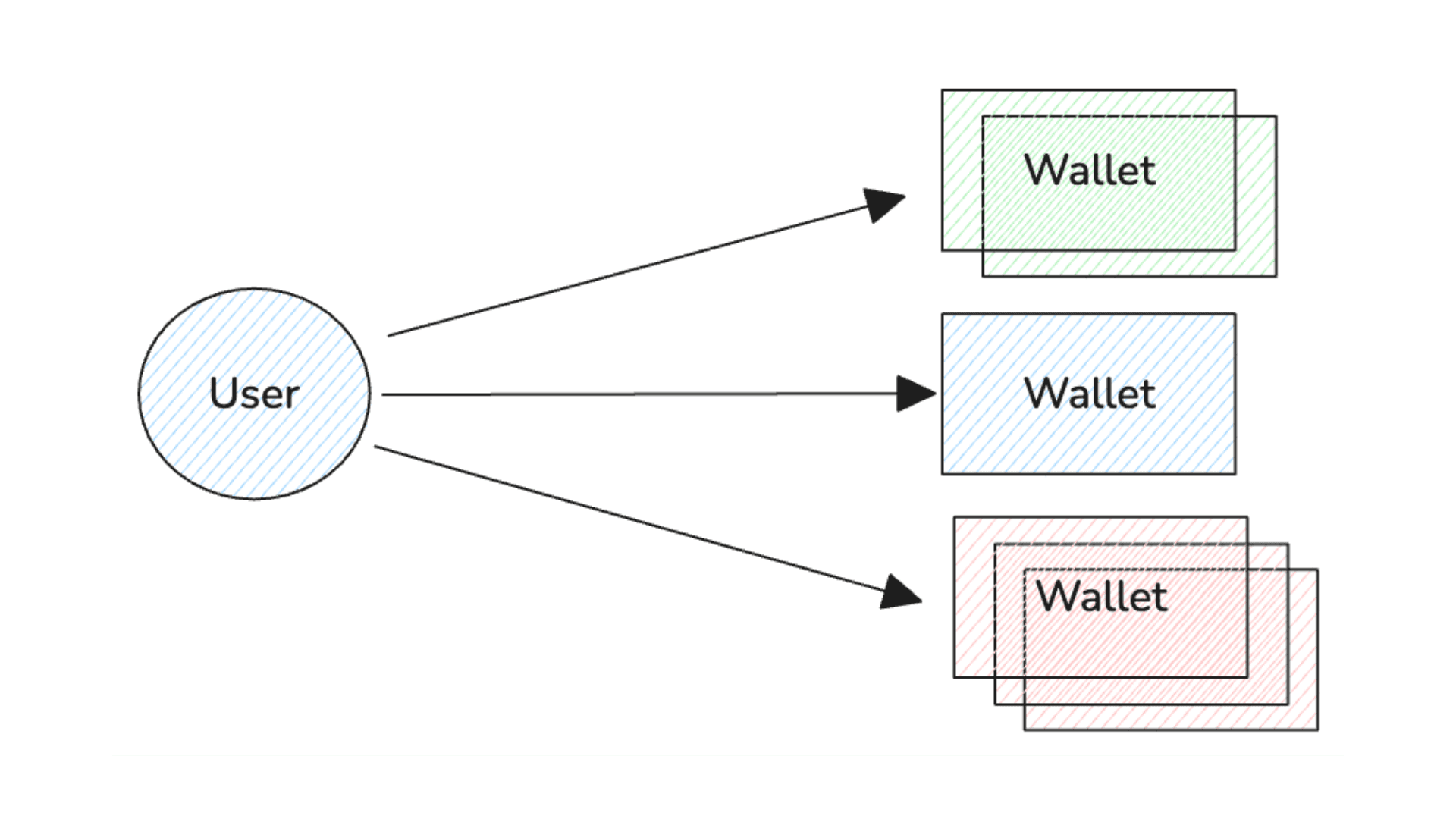
Some apps benefit from giving users more than one wallet. This could be to optimize trading, maintain privacy, or enable activity across various chains.
Privy is multichain by default, allowing developers to generate wallets on any chain using the same abstractions. It also supports hierarchical deterministic (HD) wallets), enabling multiple wallets from a single user seed.
This allows each user to seamlessly operate across chains or use wallets with different purposes.
For instance, social app Farcaster supports hundreds of thousands of funded wallets using Privy across Solana, Base, Monad and other ecosystems. Users can have one or more wallets under the hood, but need not interact with this complexity.
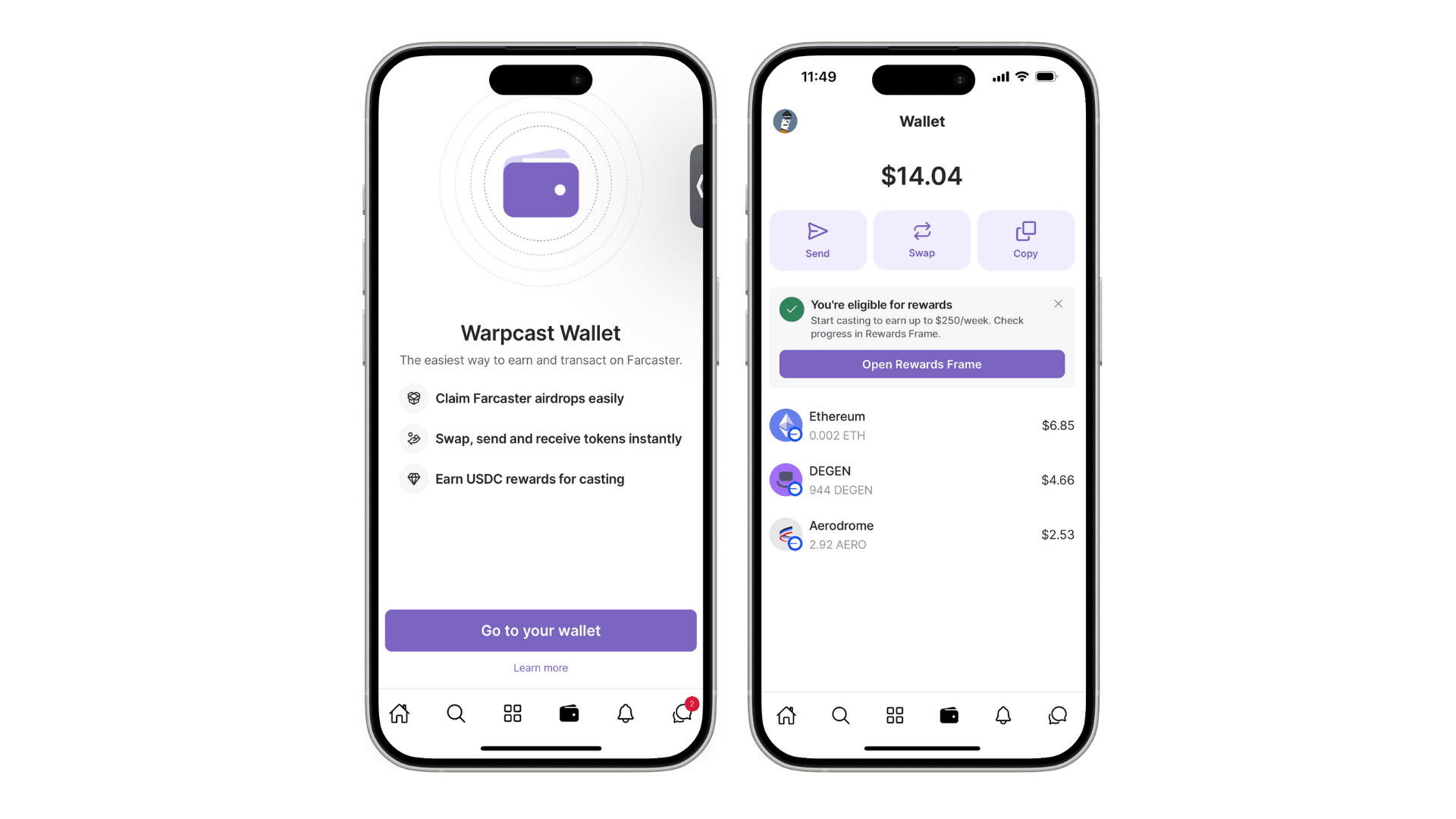
Restaurant payments app Blackbird also orchestrates multiple wallets for each user. Each user has two wallets: one holds the user’s onchain membership, the other acts as their spending wallet for their $FLY balance. This clean separation supports a modular account system while maintaining a smooth user experience.
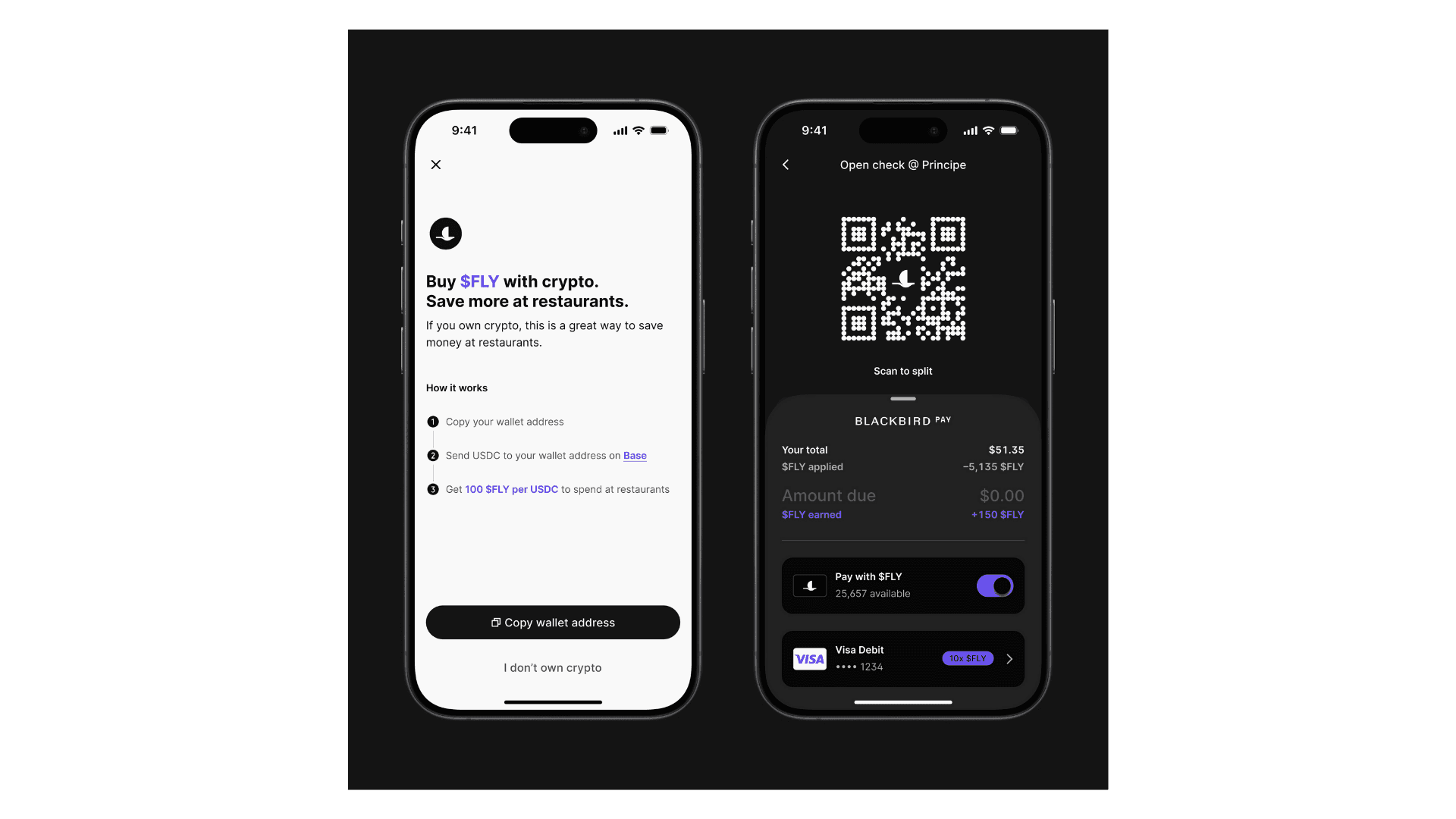
3. Automated wallet actions with scoped signers
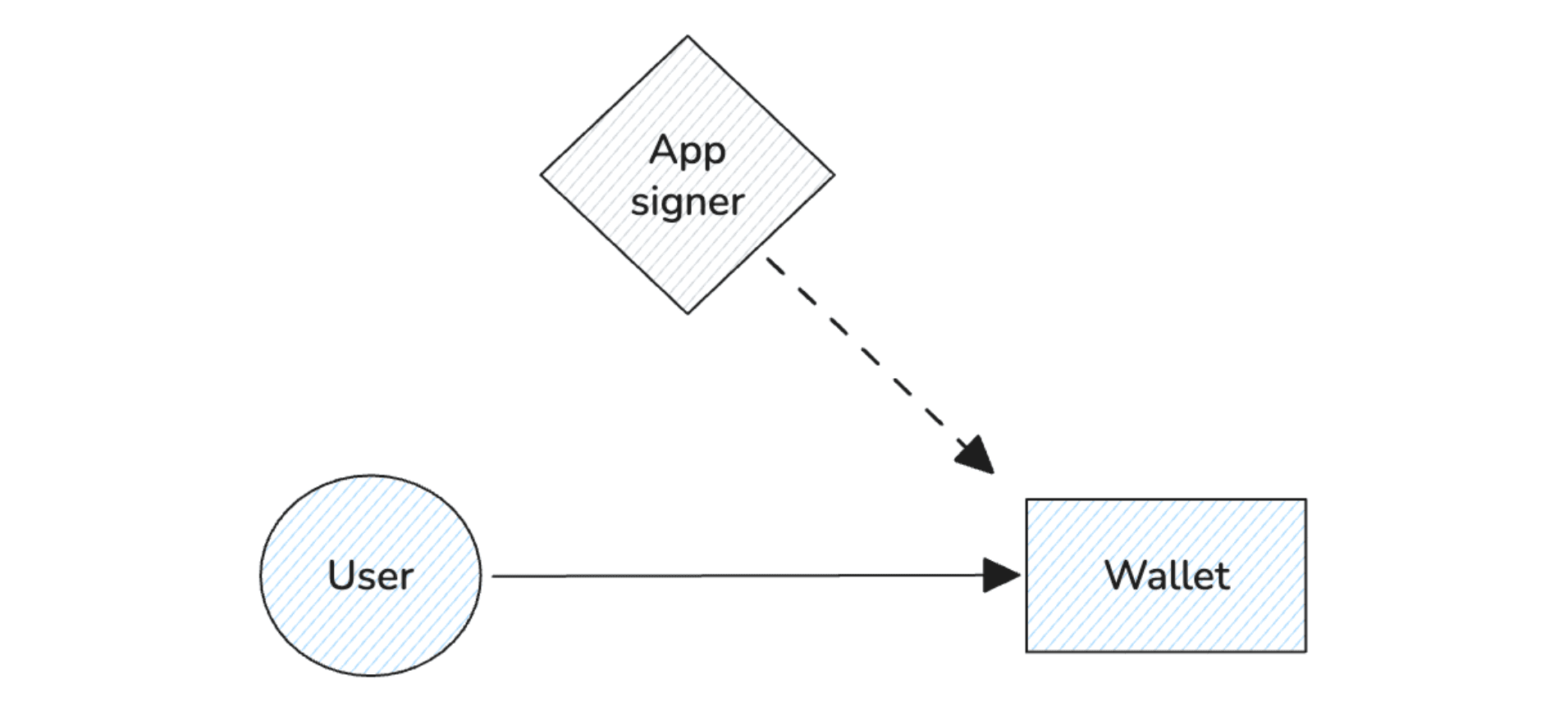
Privy enables you to issue scoped signers for wallets (think “session keys”). These are additional signing keys with scoped permissions that allow your app to take action on a user’s behalf, even when they’re offline.
This setup enables the app to take certain well-scoped actions on behalf of the user securely. For instance, it enables:
Dollar-cost averaging: register a key that can purchase a set amount of assets on a schedule.
Limit orders: place a trade at a given price target.
Portfolio rebalancing: move assets across yield generating asset pools (eg) to enable optimal returns for your user.
Trading apps like VECTOR use scoped signers to enable users to authorize specific strategies such as limit orders without compromising custody. Permissions are enforced via policies, so each session signer can only do what the user explicitly allows.
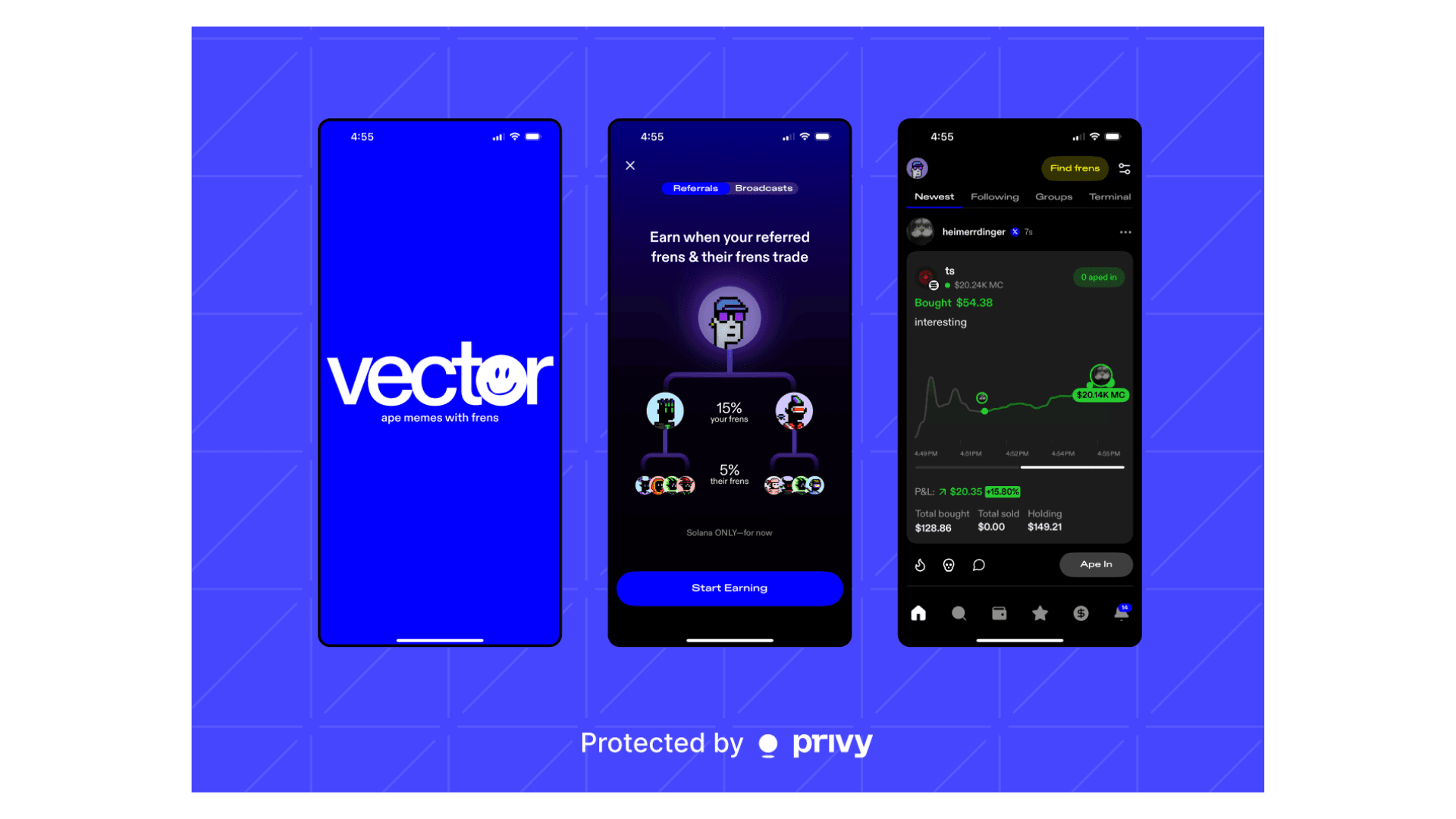
4. Multi-party wallets and multisigs

Privy also supports shared wallets with granular permissions for each signer, enabling multiple owners to manage a shared wallet.
This is ideal for B2B, fintech, and neobanking applications, where wallet control may involve multiple people with distinct roles. Using Privy’s key quorums, you can also set up a m-of-n (e.g. 2 out of 3) signer system to approve a transaction.
Plural, for instance, is building a tokenized asset management platform for clean energy infrastructure. With Privy, they manage multiparty wallets where key quorums can be defined . This ensures that investment decisions require approval from multiple stakeholders, while maintaining transparency and security onchain.
5. Programmatic transaction management

Beyond user wallets, Privy enables low-level key management and wallet infrastructure to automate transaction management for applications. Typically, the app itself will set up a number of wallets to manage onchain flows, payouts, gas sponsorship and more.
These wallets aren’t tied to any specific user. Instead, they’re triggered programmatically by app logic, which can be used for payout engines, cross-chain rebalancing, revenue distribution, and more.
This setup is used by teams building automated systems and backend services that need to manage wallets directly. For example, Bankr bot uses Privy to simulate transactions and execute token launches autonomously. These are triggered programmatically from activity in the social feed, without requiring direct user interaction.

Closing thoughts
Privy makes it easy to get started with embedded wallets — but that’s just the beginning. Programmable ownership means developers can configure wallets and signing logic to shape nearly any onchain workflow.
From social apps to fintech platforms to trading tools, Privy’s infrastructure provides the secure, scalable building blocks to move fast without compromising on user experience, flexibility, or control.
Want help designing your ideal setup? Get in touch or dive into our docs to explore what’s possible.

